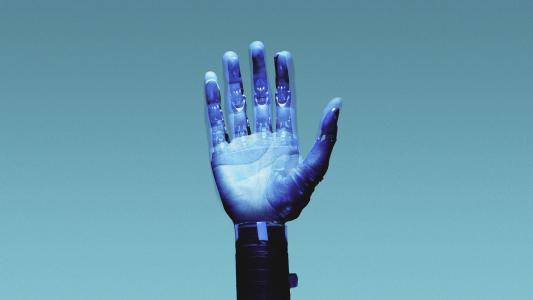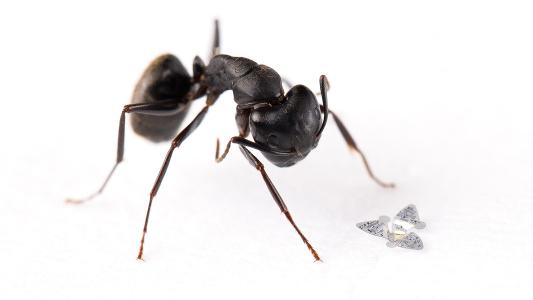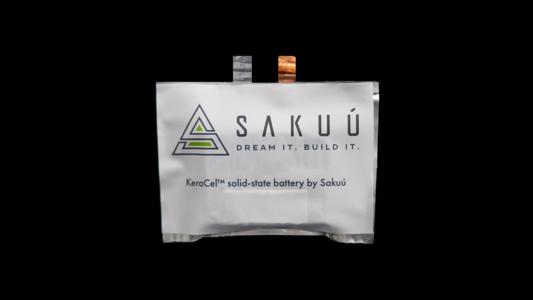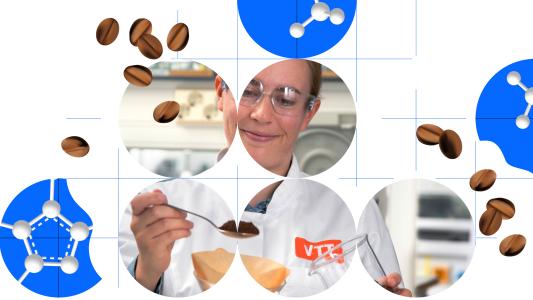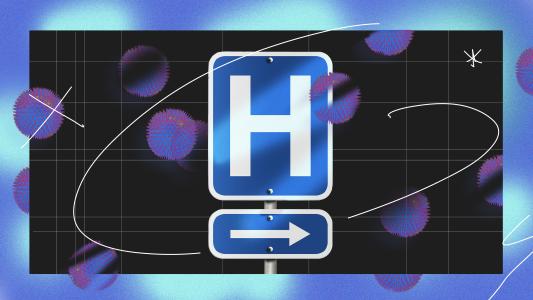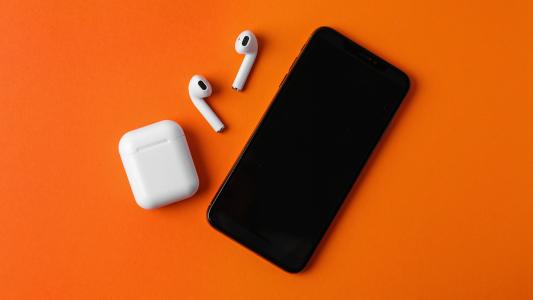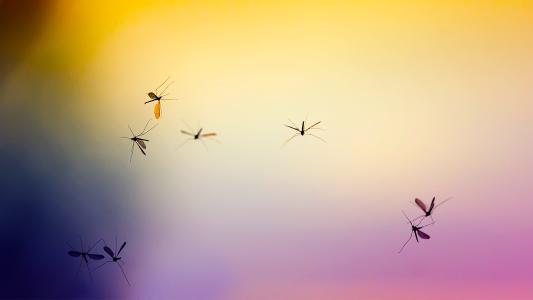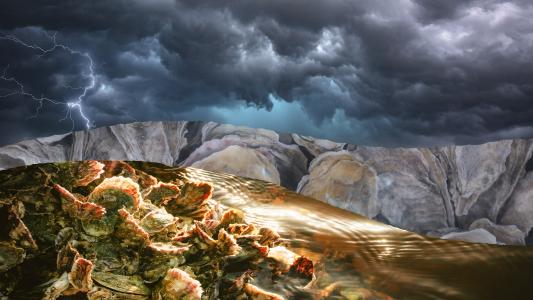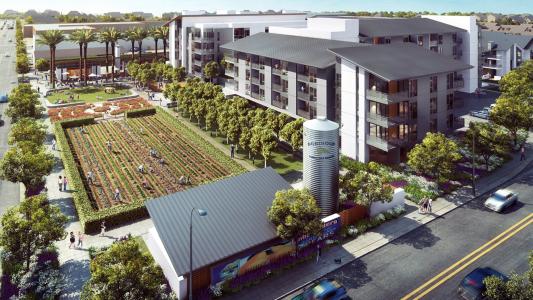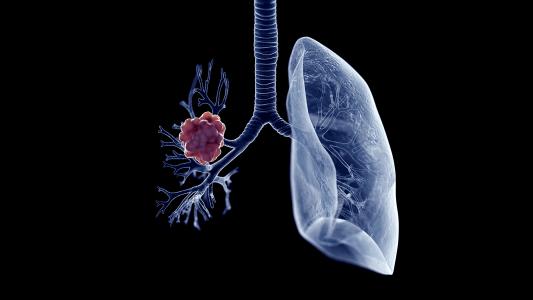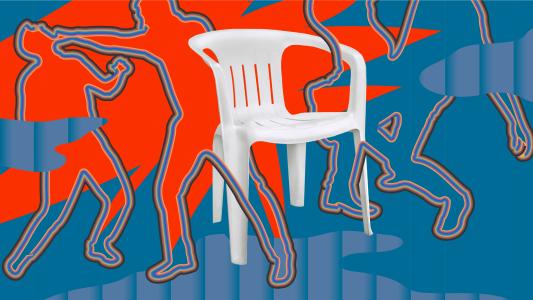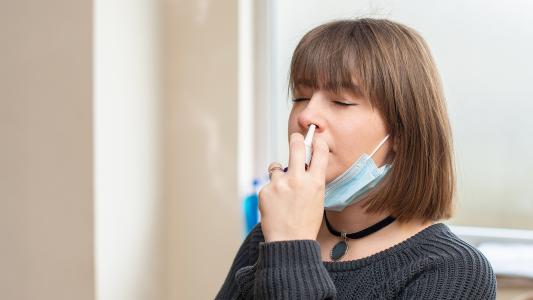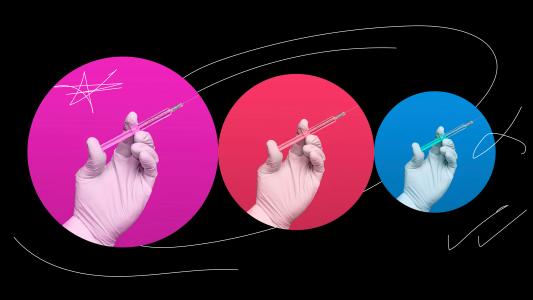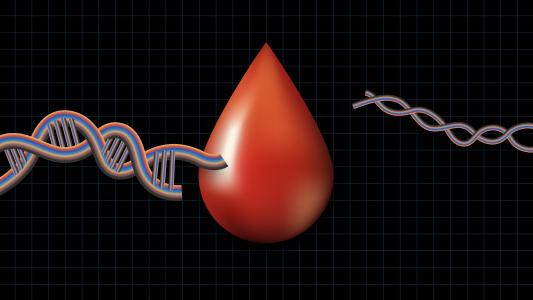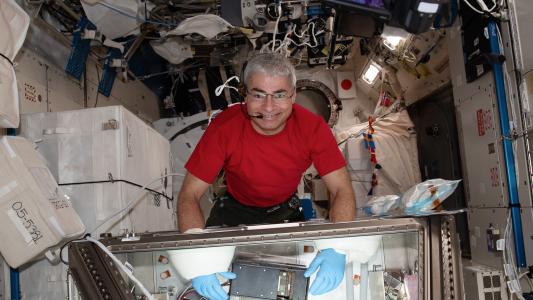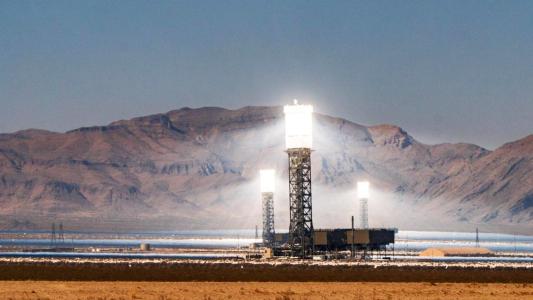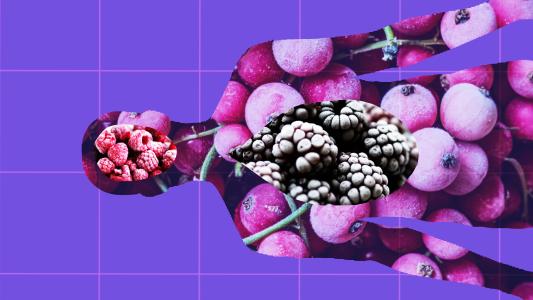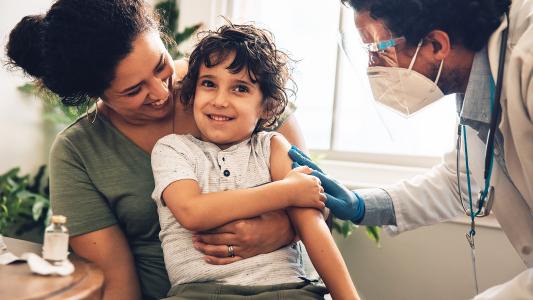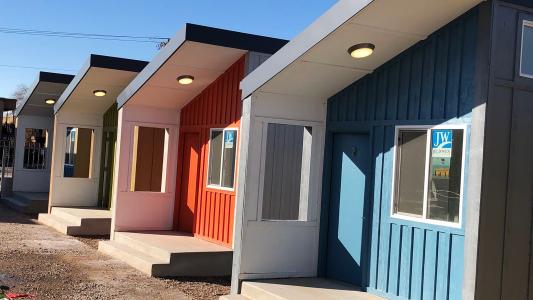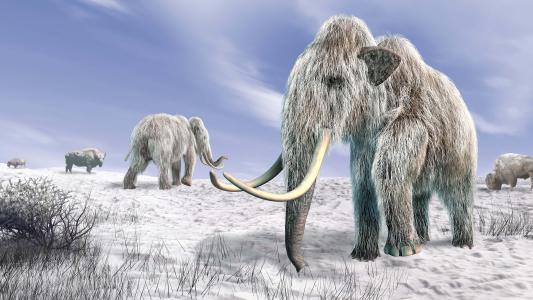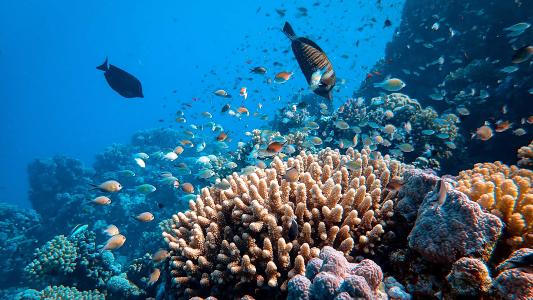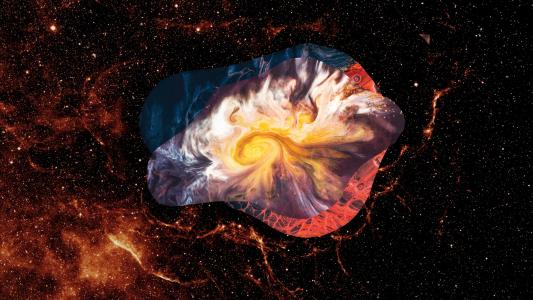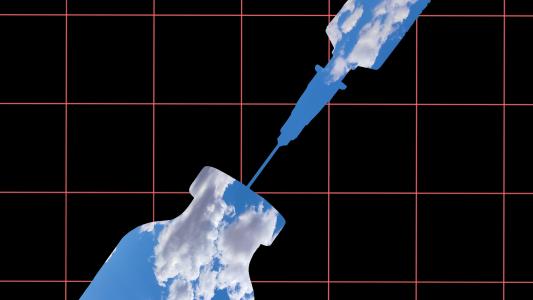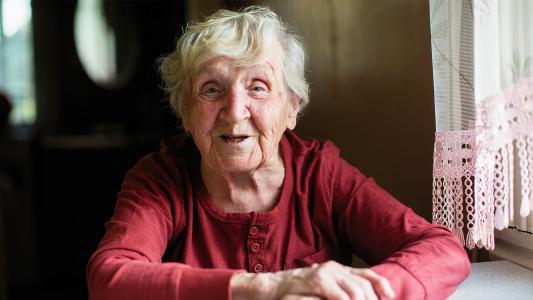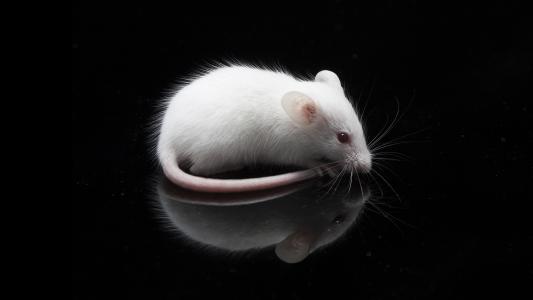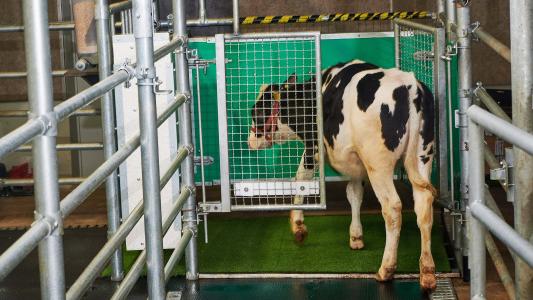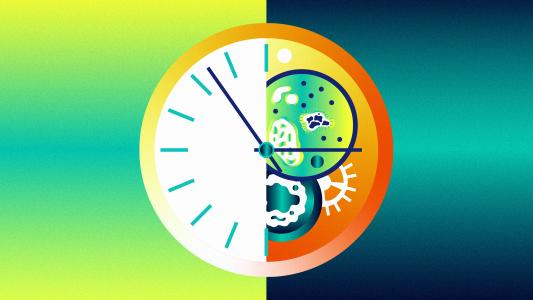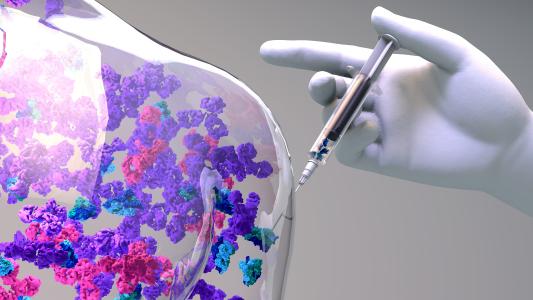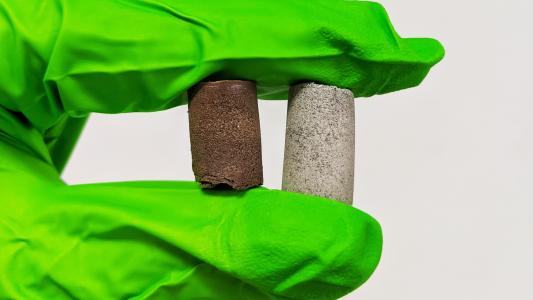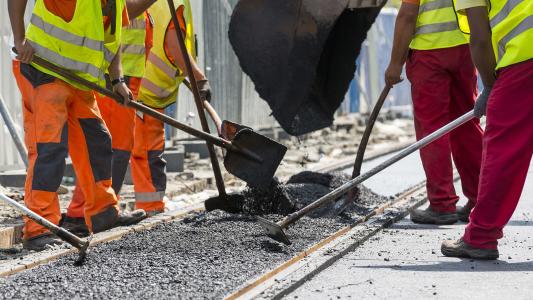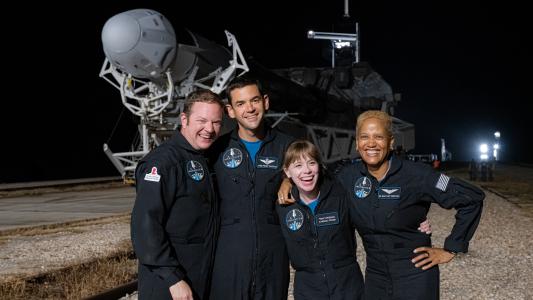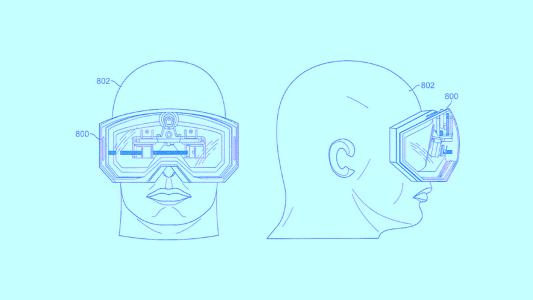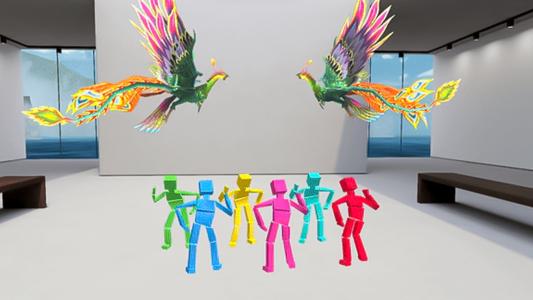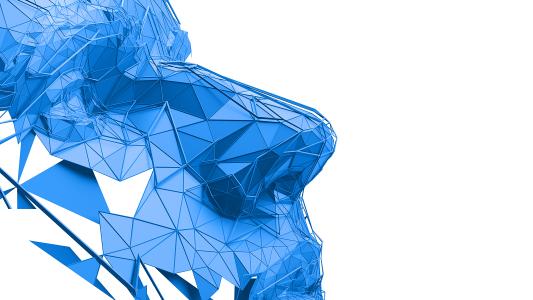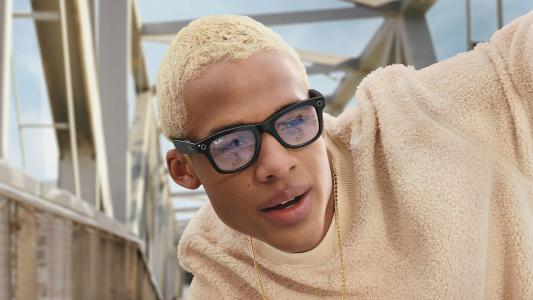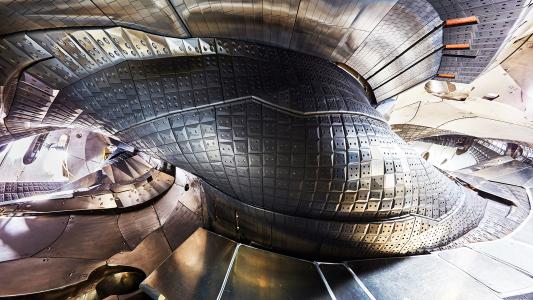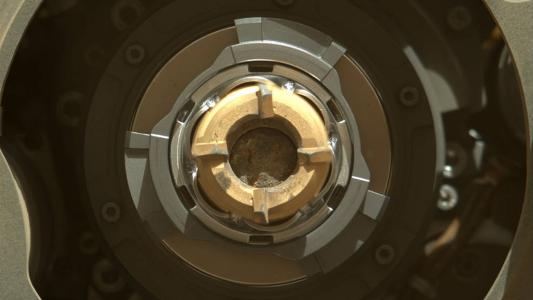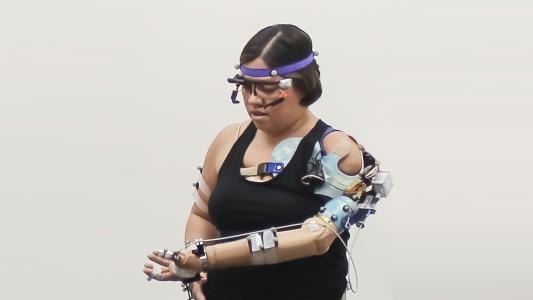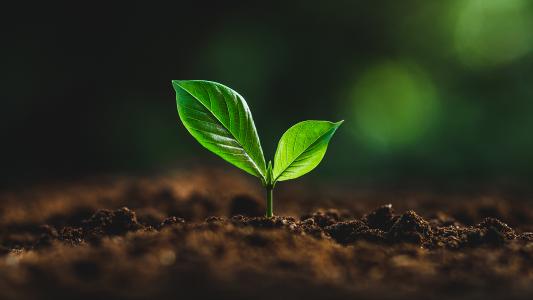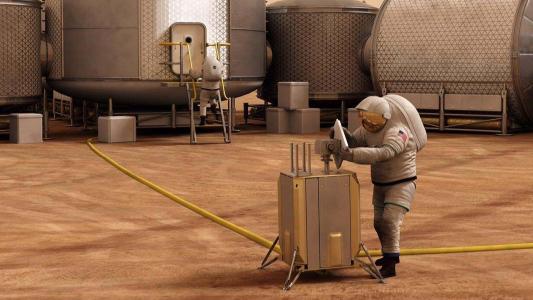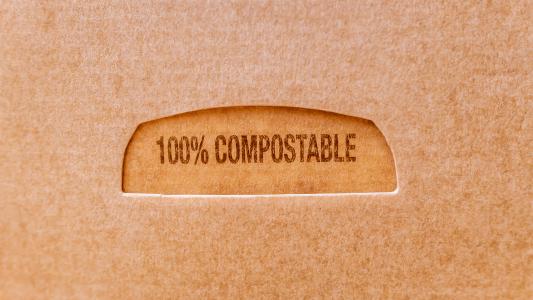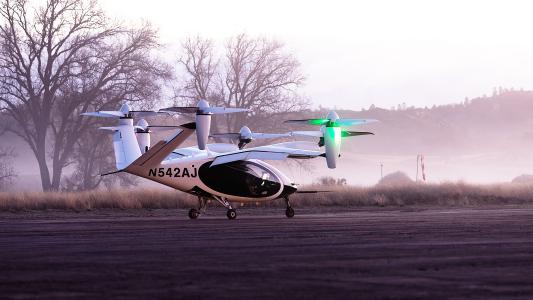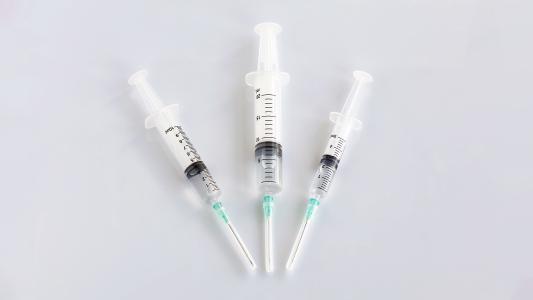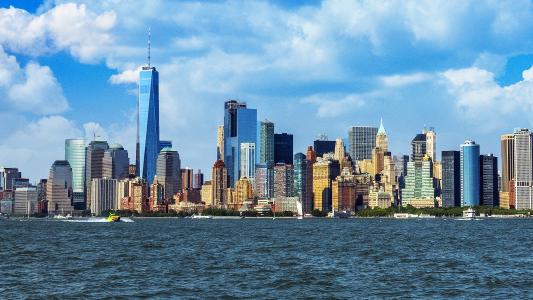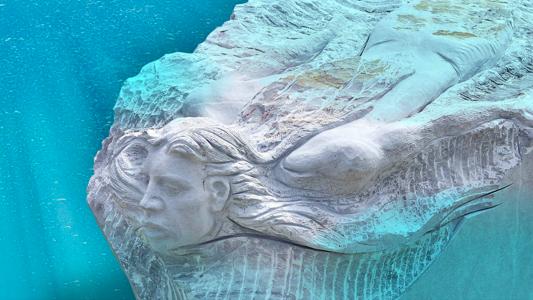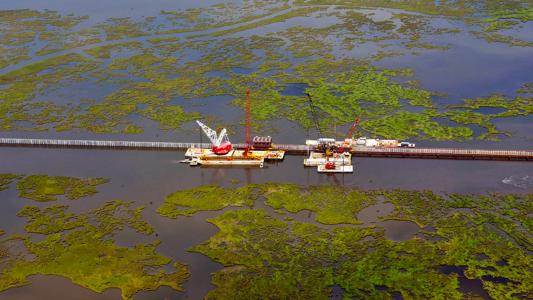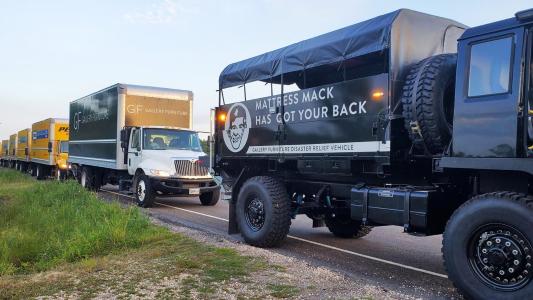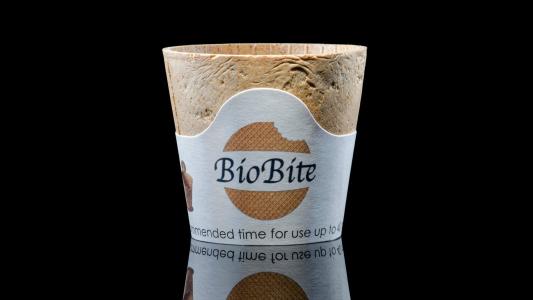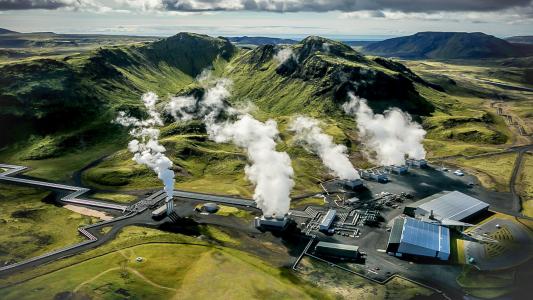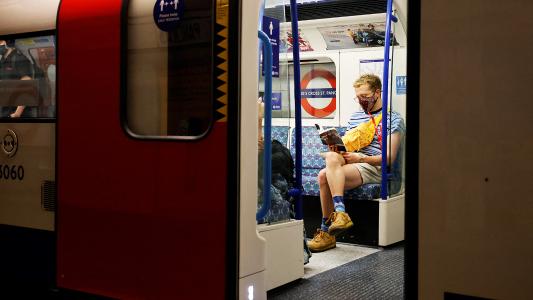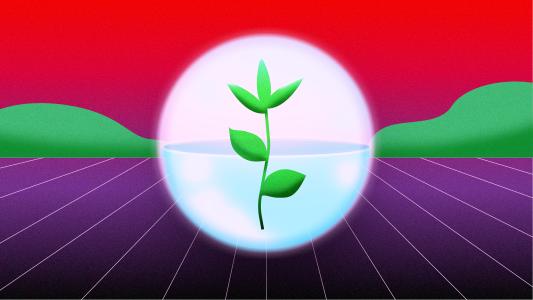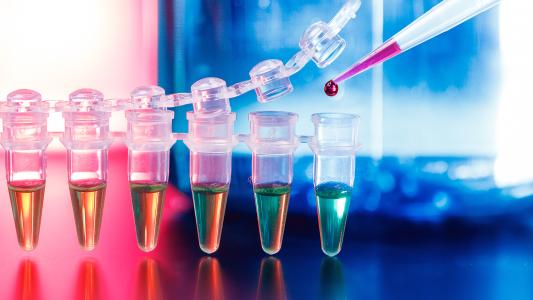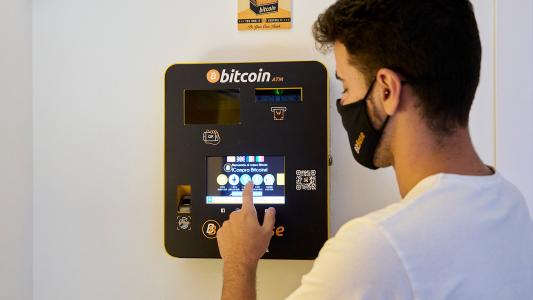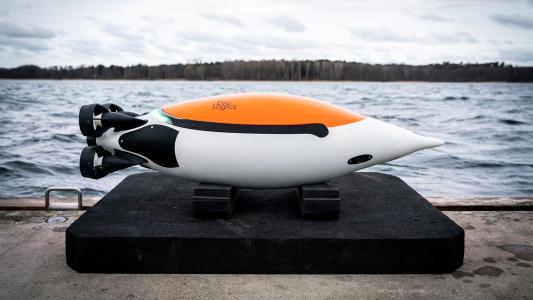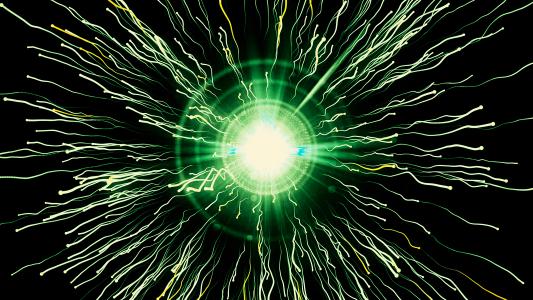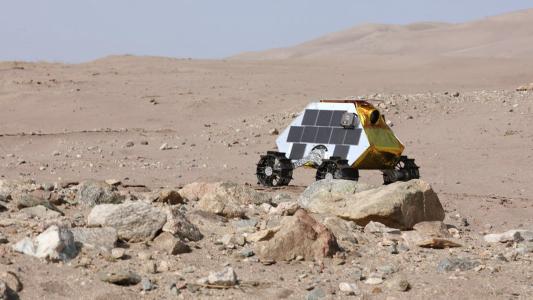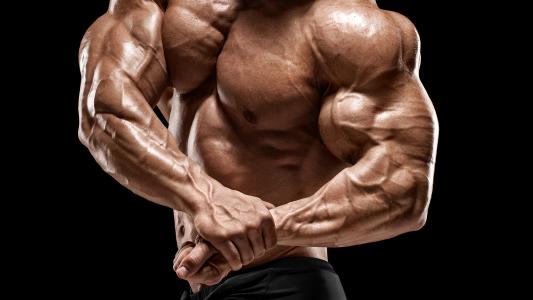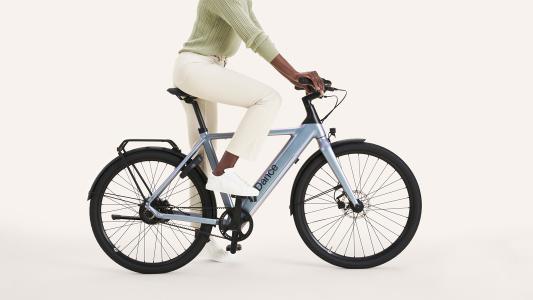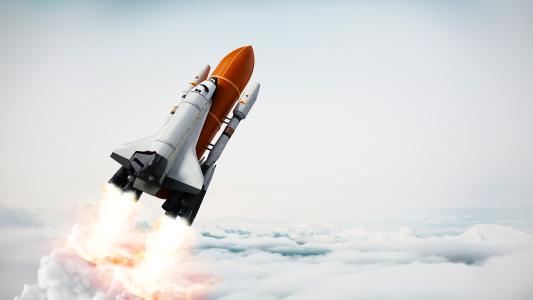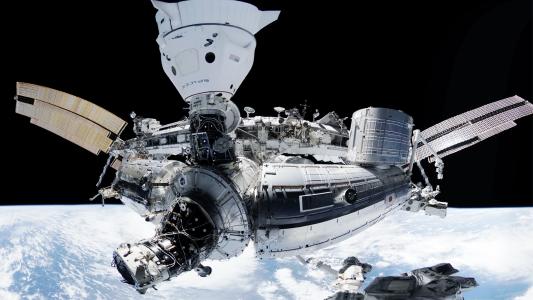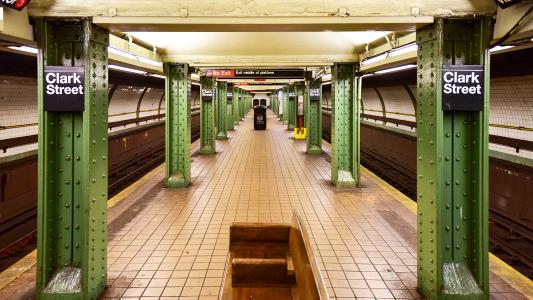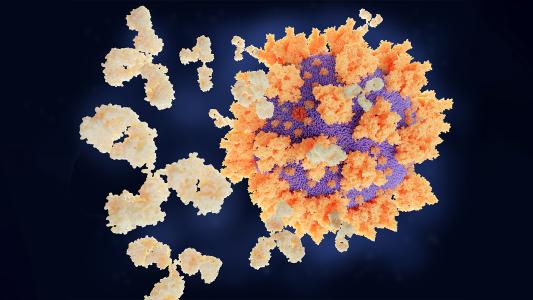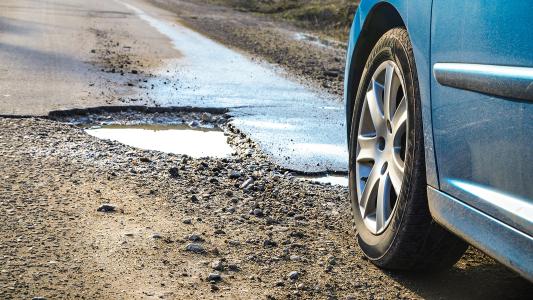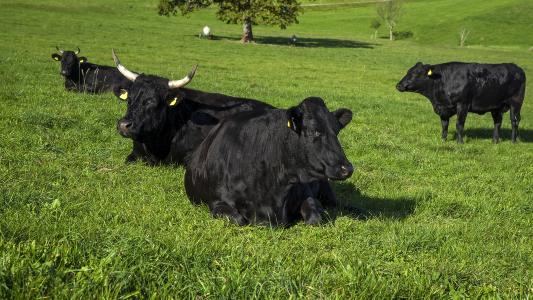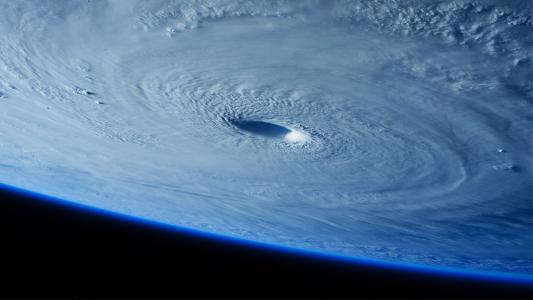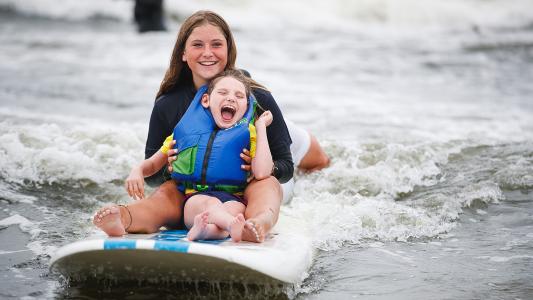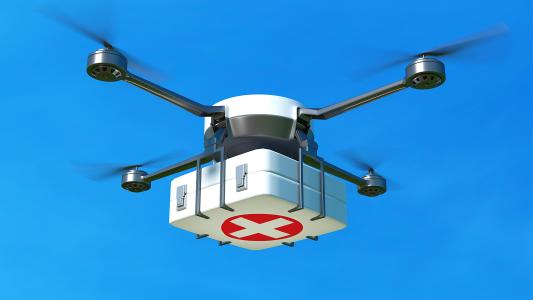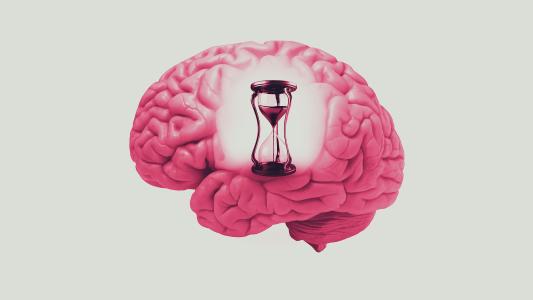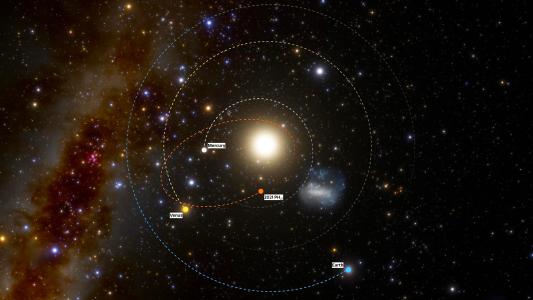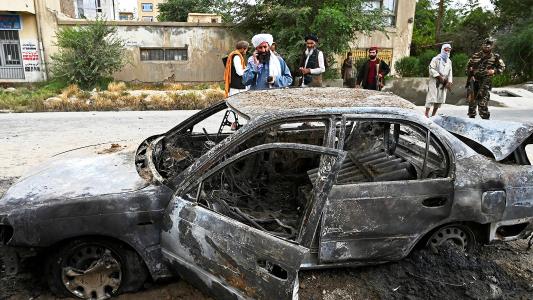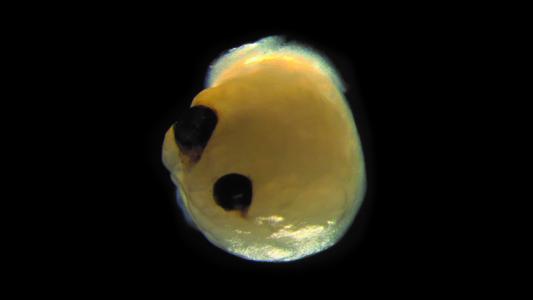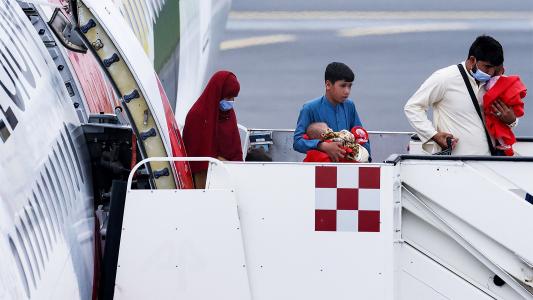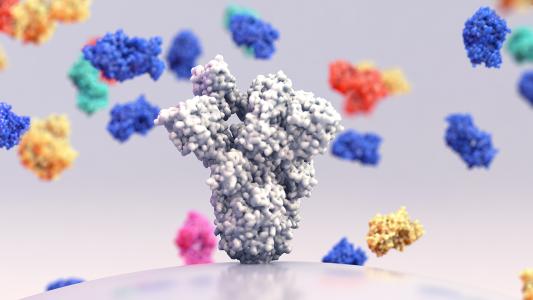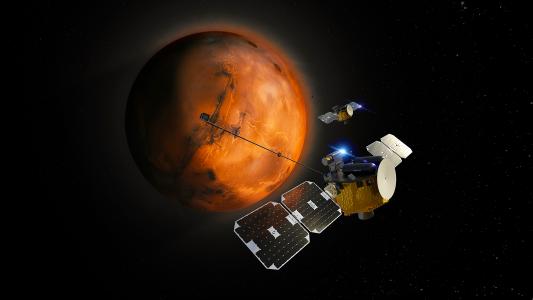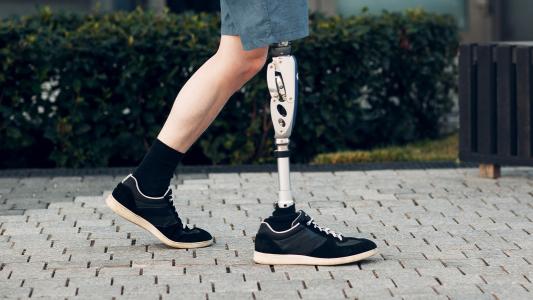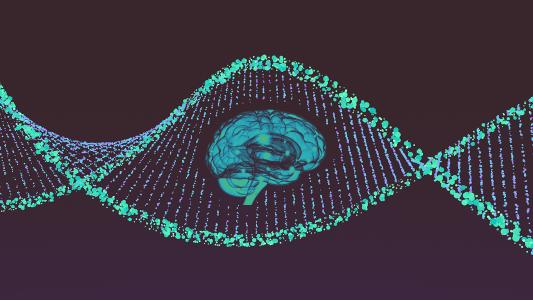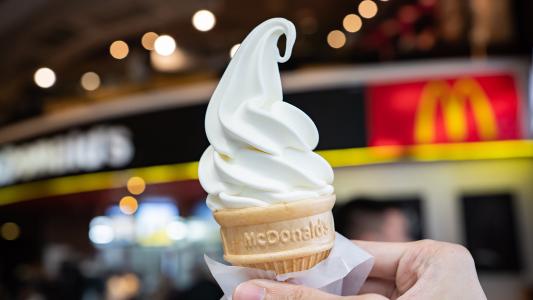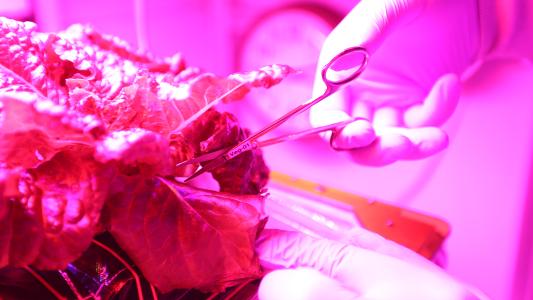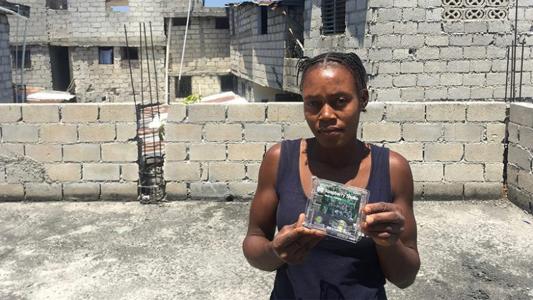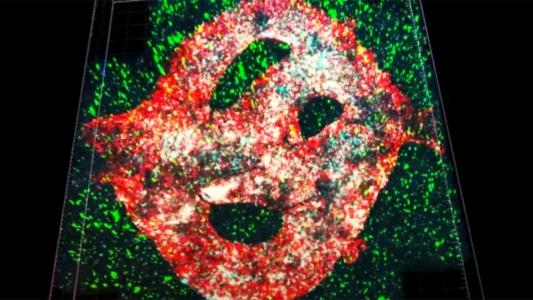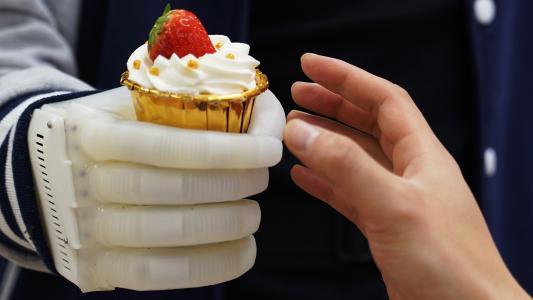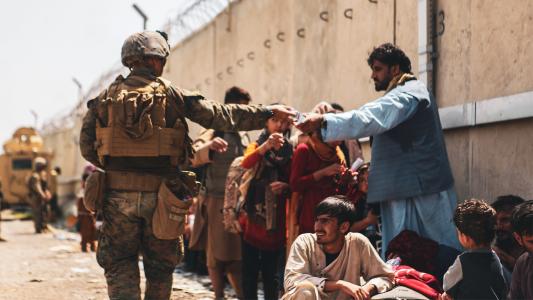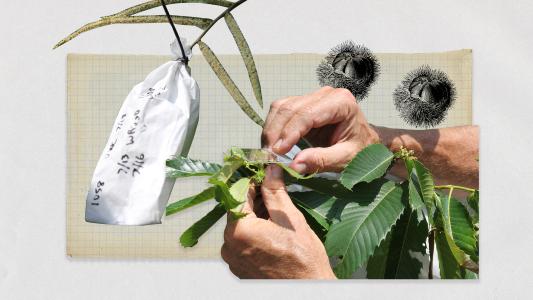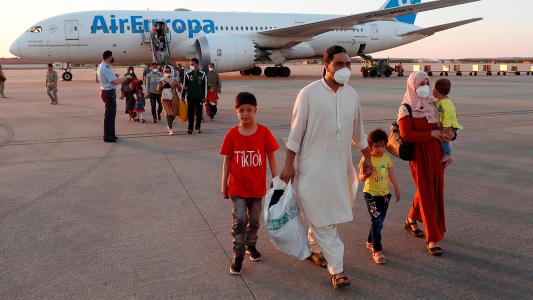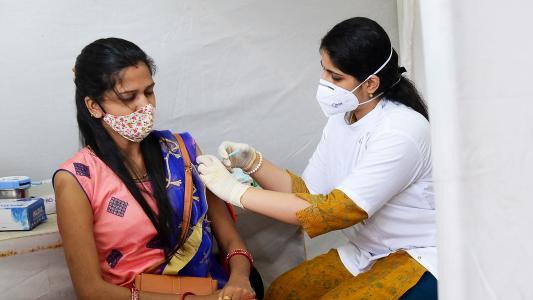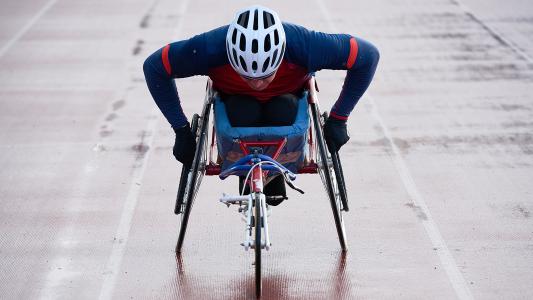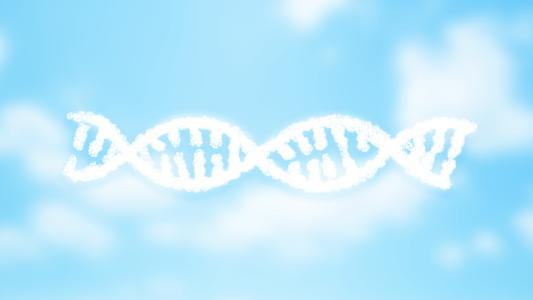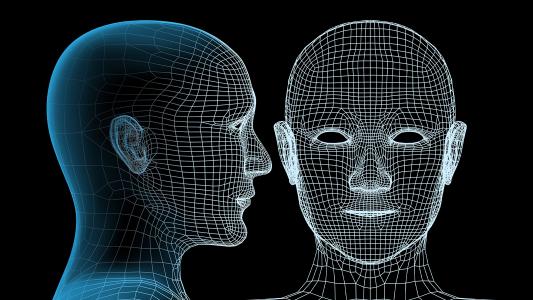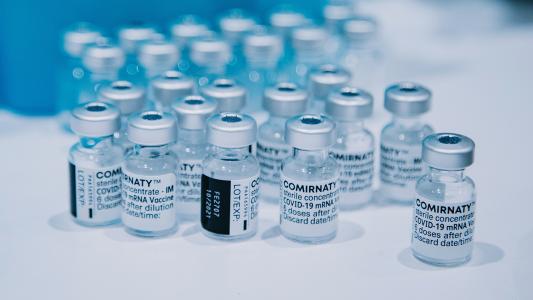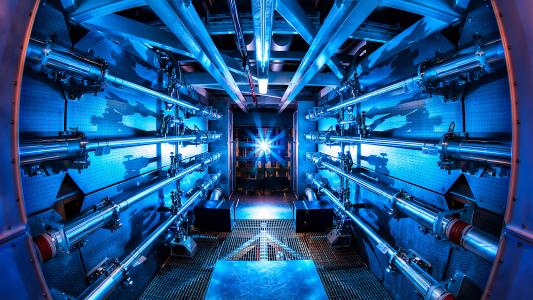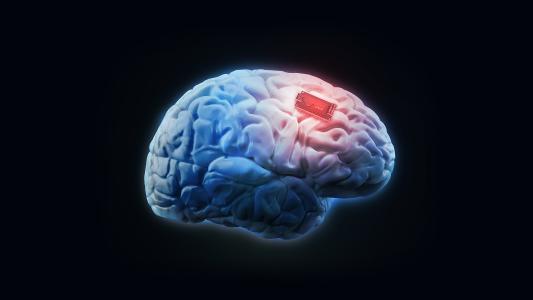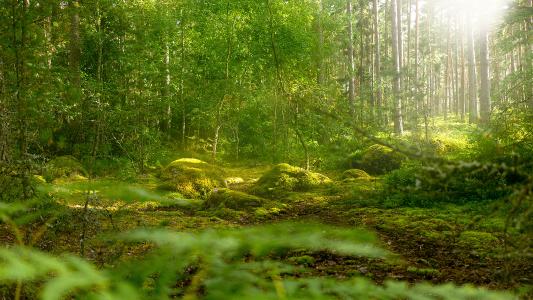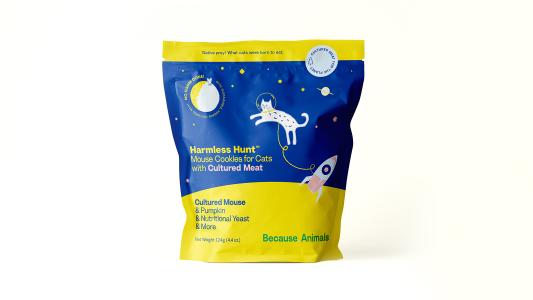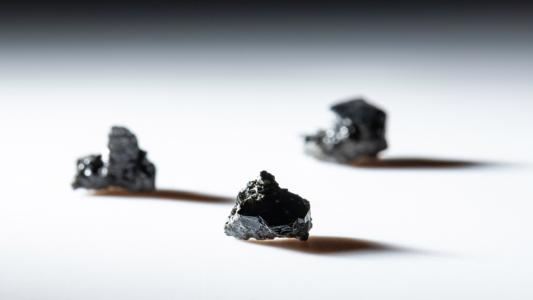MIT’s new bionics center may usher in our cyborg future
MIT has established a new bionics research center to help people everywhere overcome the challenges of disabilities.
Flying microchips the size of sand are tracking air data. Watch them fly.
Scientists have built the smallest artificial flying structures yet — gadgets that could one-day monitor air pollution and the spread of airborne diseases.
What does China’s crypto ban mean for the tech world?
The ban could lead to an exodus of Chinese crypto entrepreneurs and a diffusion of crypto technology in Southeast Asia.
New 3D-printed batteries could change energy storage forever
A 3D-printing startup has created a solid state battery that "equals or betters" the performance of current lithium-ion batteries.
Scientists make sustainable coffee from lab-grown cells
Finnish researchers are making sustainable coffee in the lab to combat the negative environmental effects of coffee production.
Antiviral reduces COVID-19 hospitalizations by 87%
The FDA-approved antiviral drug remdesivir prevents high-risk people from ending up in the hospital, if given early.
No more cords: one day an entire room may power up all your devices
Charging rooms may free us from the tangle of cords needed to power our electronic devices.
A malaria antibody prevented infections in purposefully-infected volunteers
In a small study, researchers found an antibody that prevents malaria infection in people purposefully infected with the parasite.
How oyster reefs protect against hurricane damage
Coastal cities are turning to eco-engineering to protect their coastline from storm surges and hurricane damage. Their floodwater solution: building oyster reefs to act as a natural breakwater.
“Agrihood” puts a farm in the center of Silicon Valley housing
An “agrihood” under construction in Santa Clara, CA, will give low-income residents access to cheap produce grown onsite.
Johns Hopkins has developed a lung cancer blood test
Researchers at Johns Hopkins are using AI to power a lung cancer blood test.
“Violence interrupters” combat crime from lawn chairs
Groups of violence interrupters are spending time in dangerous neighborhoods so they can be present to defuse potentially violent situations.
Want better nasal vaccines? Look to the bacteria in your nose.
Researchers are investigating the link between the bacteria inside your nose and how effective nasal vaccines can be.
FDA approves COVID-19 boosters for seniors, high-risk groups (Updated)
The FDA has expanded its authorization of COVID-19 boosters of Pfizer’s vaccine to include seniors and people in high-risk populations.
New portable blood test kit is cheap, fast, and accurate
A new blood test kit that’s fast, portable, and accurate could help bring better healthcare to people in remote and underdeveloped areas.
Astronaut to break NASA’s record for longest time in space
Astronaut Mark Vande Hei is poised to set a new NASA record for longest time in space, spending about 353 days aboard the ISS.
Can these mirrors give us solar power at night?
Concentrated solar power plants could help us achieve our clean energy goals, but it won't come cheap.
Study suggests preserving food using tech developed for organs
By preserving food with isochoric freezing, we could improve quality and decrease energy usage in the frozen food industry, say scientists.
Pfizer says its COVID-19 vaccine works in kids
New trial results suggest Pfizer’s COVID-19 vaccine works in kids between the ages of 5 and 11, safely triggering a robust antibody response.
Tiny home village offers services for homeless people
Albuquerque, New Mexico opened a tiny home village to give homeless people shelter and a chance to get back on their fee
Can the woolly mammoth save Siberia from climate change?
Harvard geneticist George Church’s new de-extinction startup aims to resurrect the woolly mammoth to help combat permafrost thaw.
Probiotics could help coral survive the changing climate
A new study has found that probiotics can help corals fight coral bleaching.
Mystery of Chinese supernova solved after 800 years
A new study explains where the mysterious “Chinese supernova” went after disappearing from the night sky more than 800 years ago.
Trial of opioid vaccine launches in US
An opioid vaccine that prevents people with opioid use disorder from feeling “high” when they take oxycodone is moving to human trials.
How we doubled our life expectancy in the last 100 years
“The idea of taking a pill and getting better is actually a very recent invention.”
mRNA cancer treatment shrinks tumors in mice
An mRNA cancer treatment in human trials has proven incredibly effective in mice, shrinking tumors in 85% of the rodents tested.
How artificial clouds could save the Great Barrier Reef
Scientists conducted the first “cloud brightening” field experiment to artificially thicken clouds with seawater mist, creating shade for the Great Barrier Reef
Scientists toilet-train cows to reduce air pollution
To combat the negative environmental impact of cow urine, researchers have proven it's possible to potty-train calves.
This implanted microchip may one day control your sleep
An implantable, wireless device could be better than popping a pill.
Moderna’s new vaccine targets COVID-19, the flu, and RSV
Moderna is developing a combination vaccine to protect against COVID-19, seasonal influenza, and respiratory syncytial virus.
Mars colonies could be built from astronauts’ blood and urine
To minimize the cost of building Mars colonies, astronauts could make concrete using space dust and their own bodily fluids.
UK building road with “wonder material” graphene
The United Kingdom is launching a world’s first trial to test whether adding graphene to recycled asphalt can increase a highway’s lifespan.
Ex-felon helps former prisoners launch careers in tech
The Underdog Devs nonprofit helps former prisoners make the connections they need to secure jobs in the technology industry
All-civilian Inspiration4 mission is ready for launch (Updated)
When Inspiration4 launches on September 15, it'll mark a new era in space tourism as the first all-civilian mission to space.
Here’s what we just learned about Apple’s AR/VR headset
New details about custom AR/VR chips point to realities of Apple’s long-awaited headset.
Understanding the metaverse through Spatial
From virtual collaboration to NFT Galleries, one of the immersive industry’s most ambitious startups is making its metaverse play.
MIT’s robotic nose can detect first sign of disease
A powerful diagnosis tool may one day be in millions of smartphones.
Facebook’s smart glasses are stylish and creepy
Facebook and Ray-Ban have released a new line of smart glasses that can take photos, answer phone calls, and play music and podcasts.
Twisty nuclear fusion reactor gets twice as hot as the sun
Physicists optimized a nuclear fusion reactor to overcome a problem that causes heat loss and prevents the device from sustaining fusion.
Perseverance rover collects first Mars rock sample — for real
NASA’s Perseverance rover has collected its first Mars rock sample, which the agency plans to send to Earth in 2031.
New bionic arm is incredibly close to the real thing
A new bionic arm is so intuitive, wearers think and behave like people without amputations while using it to perform everyday tasks.
Molecular farming could be the future of vaccines
Edible plant-based vaccines could revolutionize how we fight diseases.
Space radiation won’t stop missions to Mars
A new study predicts that space radiation alone wouldn’t make missions to Mars too risky for astronauts — as long as we timed them right.
Think smart about disposable packaging with this scorecard
A new scorecard called the Understanding Packaging (UP) Scorecard is helping businesses make sustainable decisions on disposable packaging.
Why NASA is testing an electric flying taxi
NASA is spending two weeks listening to Joby Aviation’s flying taxi as part of a campaign to integrate eVTOL vehicles into U.S. airspace.
Study: COVID-19 booster shots dramatically reduce infection risk
A large COVID-19 booster shot study in Israel found that a third dose significantly increased seniors’ protection against the coronavirus.
Forensic scientists continue mission to identify 9/11 victims
Forensic scientists have identified two more 9/11 victims and will soon use next-generation sequencing to analyze unidentified remains.
Unique underwater sculptures thwart harmful illegal fishing
Paolo Fanciulli, a fisherman from Maremma, is sinking artists’ sculptures to the seafloor to stop bottom trawling.
Rule-bending engineers protect New Orleans from Hurricane Ida
By going beyond the "100-year storm" standard for flood protection, U.S. engineers helped minimize the impact of Hurricane Ida on New Orleans.
Furniture store gives Hurricane Ida victims a place to sleep
Houston furniture store owner Jim “Mattress Mack” McIngvale is letting Hurricane Ida victims displaced by the storm sleep in his showroom.
Soccer fans can enjoy a waste-free edible coffee cup
The English Premier League, the most-watched league in the world, is aiming to become sustainable by offering an edible coffee cup at the Etihad Stadium.
The world’s largest direct air capture plant just opened
A partnership between Climeworks and CarFix just started the largest direct air capture plant, storing carbon dioxide in solid form deep underground.
Saving the ozone layer avoided 2.5 degrees of global warming
A new study shows that banning CFCs in the 80s also protected the depleting ozone layer and reduced the rate of global warming.
UK researchers are growing the Delta variant for human challenge trials
Responding to the variant’s rise, UK researchers are growing the Delta variant for trials.
These farmers want to salt the earth — and grow crops in it
As salt encroaches on productive agricultural land, a handful of startups are finding ways to make crops grow in seawater with genetic modification and transforming solar saltwork.
A blood test for your circadian clock
Your circadian clock controls more than when you sleep and wake. Researchers are developing a simple blood test to try and accurately tell your time.
Bitcoin is now ‘legal tender’ in El Salvador
If more countries follow, what will this mean for consumers and businesses around the world?
Robot penguins are exploring mysterious ocean currents
In an effort to study mysterious ocean eddies, an oceanographer teamed up with a bionics company to build an AUV inspired by penguins.
Scientists observed what Einstein predicted a century ago
Physicists claim to have generated matter from pure light particles for the first time — a spectacular display of Einstein's most famous equation.
NASA pays space startup $.10 for moon mining mission
NASA paid Colorado startup Lunar Outpost $.10 as part of a moon mining contract that could help advance human space exploration.
Cambridge researchers have created a mathematical model for building muscle
Now there’s a mathematical model that could maximize the effectiveness of exercise.
Don’t want to buy an e-bike? Subscribe to one.
German startup Dance's e-bike subscription service gives people a chance to enjoy the benefits of the bikes without the hassles.
Can we (legally) colonize space?
The space race is heating up, but many legal issues are still open to debate.
VR spacewalk will let you see what ISS astronauts see
A VR spacewalk filmed by an “outer space camera” will be the centerpiece of the next episode of Space Explorers: The ISS Experience.
Is it possible to flood-proof the subways?
In the wake of Hurricane Ida and the flooded New York City subway system, can we rebuild flood-proof subway tunnels?
One antibody stops all strains of COVID-19 from infecting cells
A newly discovered antibody can neutralize all strains of COVID-19 and every other sarbecovirus known to infect humans.
AI is helping cars spot potholes
Researchers have developed an AI system that allows cars to spot potholes.
3D printing gives lab-grown beef Wagyu marbling
Japanese researchers have created a morsel of lab-grown beef with the distinct marbling of fat found in Wagyu steaks.
How to slay a hurricane
Hurricanes are becoming more powerful — can scientists engineer a way to weaken them and save lives?
World-class surfers help kids with disabilities ride the waves
Ten children with disabilities got a chance to go surfing through an adaptive sports program at NYC’s Hospital for Special Surgery.
Drone ambulances race to help cardiac arrest victims (Updated)
Drone ambulances deliver defibrillators to suspected cardiac arrest victims more quickly than traditional ambulances in a Swedish study.
The history of boredom might surprise you
What we can learn from our complicated relationship with boredom.
Astronomers discover solar system’s fastest-orbiting asteroid
Astronomers have discovered an asteroid that orbits the sun in just 113 days, making it the fastest-orbiting asteroid in our solar system.
Crisis app for Afghans provides real-time updates on threats
Ehtesab, a crisis app for Afghans, uses crowdsourced data to provide real-time alerts to residents of Taliban-controlled Kabul.
Mini brains grown in the lab sprout primitive “eyes”
Researchers have grown mini brains with light-sensitive eye structures that could lead to breakthrough treatments for vision disorders.
Your airline miles can help Afghans escape the Taliban
To help Afghans escape the Taliban, people have donated millions of airline miles to a nonprofit that secures flights for refugees.
Antibody cocktail highly effective at preventing COVID-19
An antibody cocktail developed by biopharmaceutical company AstraZeneca was highly effective at preventing symptomatic COVID-19 infections.
Twin Mars satellites have greenlight for launch
Two tiny Mars satellites will head to the Red Planet in 2024 as part of a NASA program testing smaller spacecraft on planetary missions.
Tiny magnetic beads and turkeys may lead to better prosthetic limbs
MIT and Brown researchers have developed a technique using implanted magnetic beads that they hope will lead to better control of prosthetic limbs.
Brain-wide gene editing may one day treat Alzheimer’s
Researchers have developed a brain-wide gene editing technique that treated Alzheimer’s disease in mice.
Fighting for the right to repair McDonald’s ice cream machines
A judge has issued a victory to Kytch, a startup that makes it easier for fast food franchise owners to repair McDonald’s ice cream machines.
"Space farmer" grows plants under fake cosmic radiation
Researchers created a mini radioactive sky on Earth to study how cosmic radiation might impact how astronauts on Mars grow food.
Major earthquake in Haiti tracked by citizen seismologists
Private citizens are helping scientists study the recent earthquake in Haiti by hosting low-cost quake-monitoring devices.
Researchers have 3D-printed an active tumor
Tel Aviv University researchers have 3D-printed an active glioblastoma tumor, potentially paving a way to better study the lethal brain cancer.
MIT has created an inflatable prosthetic hand
MIT researchers have created a soft, inflatable prosthetic hand that provides advanced abilities at a fraction of the cost and weight.
Military vets lead “Digital Dunkirk” to evacuate Afghan allies
U.S. military vets are leading a “Digital Dunkirk” to help extract fellow citizens and Afghan allies from a Taliban-controlled Afghanistan.
The bold plan to bring back the American chestnut
Researchers plant a small experimental orchard of hundreds of transgenic American chestnut trees near the coast of Maine, to restore the species.
Airbnb offers free temporary housing for 20,000 Afghan refugees
Airbnb is providing 20,000 Afghan refugees with free temporary housing through its charitable nonprofit, Airbnb.org.
India’s DNA vaccine for COVID-19 gets emergency approval
India has granted emergency approval to the world's first DNA vaccine for COVID-19.
Who to watch for at the Tokyo Paralympics
Here are five athletes to watch at the 2020 Tokyo Paralympics and one Afghan competitor whose future at the Games is still uncertain.
Scientists are vacuuming DNA from the air to study biodiversity
Researchers have proven that the atmosphere contains measurable amounts of eDNA, and they can vacuum it from the sky.
3D police lineups could reduce wrongful convictions
A new type of police lineup uses 3D technology to let eyewitnesses view suspects from any angle, and could reduce wrongful convictions.
Pfizer’s shot is the first FDA-approved COVID-19 vaccine
Pfizer’s shot has become the first FDA-approved COVID-19 vaccine, making the transition from emergency use authorization on August 23.
Nuclear fusion experiment puts ignition within our grasp (Updated)
Scientists appear on the brink of achieving nuclear fusion ignition, bringing the dream of near-limitless clean energy closer to fruition.
How a brain implant can stop pain instantly (in rats)
A new brain implant can instantly detect pain signals and provide bursts of stimulation that are pain-relieving. Researchers have shown it to be successful in rodents.
Farmers in England begin massive DIY “rewilding” effort
Farmers in East Anglia are organizing what may be England’s largest rewilding project.
NASA updates the odds on Bennu asteroid hitting Earth
Using data from the OSIRIS-REx spacecraft, NASA has updated its predictions about the Bennu asteroid impacting Earth.
Cultured meat for pets is about to hit store shelves
Biotech startup Because, Animals is creating cultured meat for pets, using mouse cells to grow the meat found in its new cat treat.
I took a creativity test, and this is what it told me
Researchers made a creativity test with objective and automated scoring that gives an accurate measure of verbal creativity.
Moon glass helps solve a lunar mystery
Analyzing moon samples from the 1980s with a new laser technique shows we were wrong about the moon’s magnetic field.
